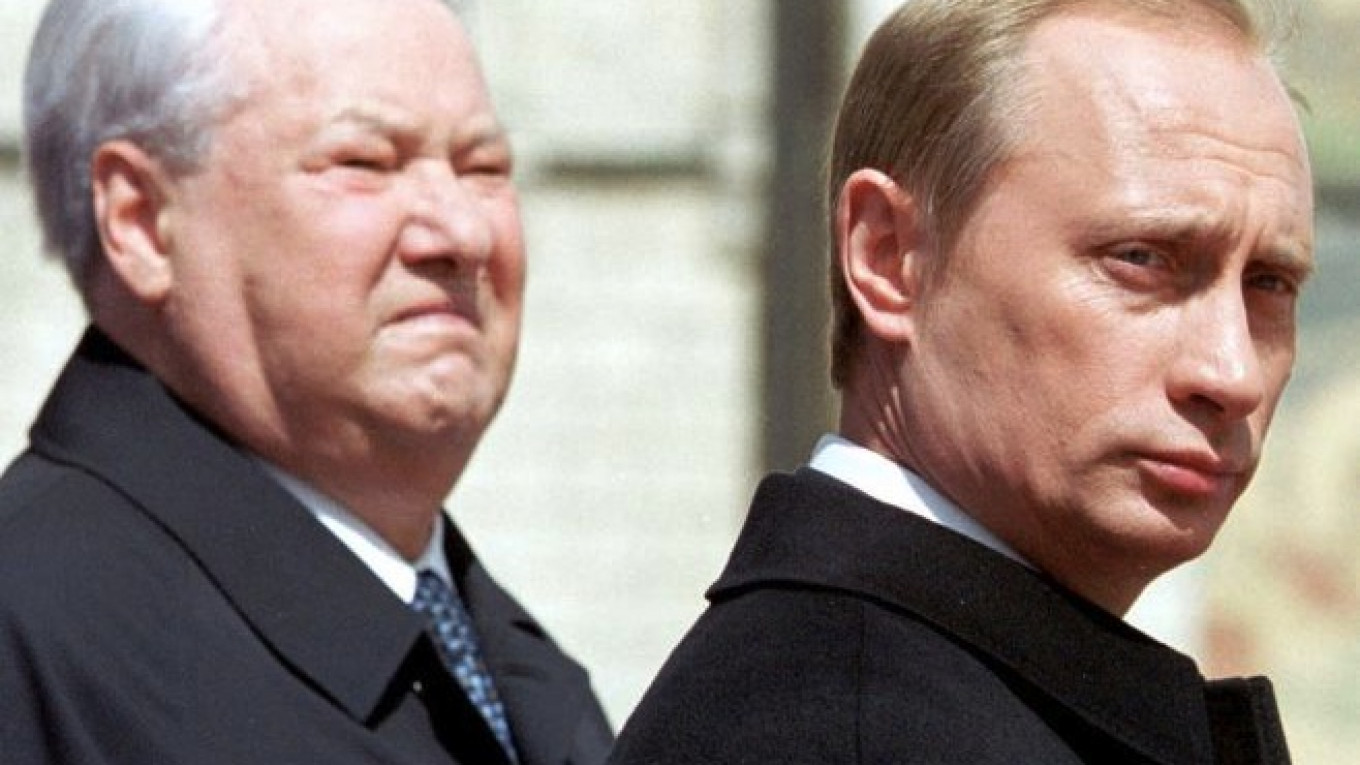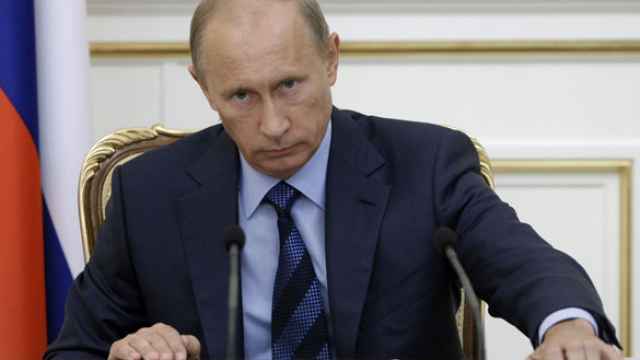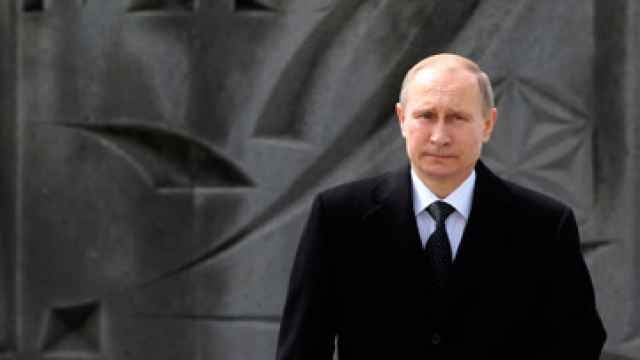A former Kremlin insider and banker has claimed that the decision to pick Vladimir Putin as the successor to former Russian President Boris Yeltsin was made by three people in the ex-leader's immediate entourage and family.
The trio at the helm of “operation 'successor'” were Yeltsin's daughter Tatyana Dyachenko, her husband Valentin Yumashev and banker Sergei Pugachyov himself, the tycoon claimed in an interview with independent TV channel Dozhd aired Thursday.
Dyachenko and Yumashev were widely seen as major forces behind the Kremlin's policies in the final years of Yeltsin's administration, when the Russian leader was visibly ailing and frequently disappeared from public view.
Yeltsin announced his resignation on New Year's Eve in 1999, in a famed surprise speech, and handed Russia's acting presidency to Putin — a man who had swiftly advanced from relative obscurity in the preceding months after Yeltsin appointed him head of a KGB successor agency, the Federal Security Service, and then prime minister.
Pugachyov denied reports that another major Kremlin insider, the late tycoon Boris Berezovsky, had supposedly picked Putin as Yeltin's successor.
“I will tell you frankly that Boris Abramovich Berezovsky was not part of this circle,” Pugachyov told Dozhd.
In the final years of Yeltsin's rule, Berezovsky was widely seen as the leader of a power group popularly dubbed “the family,” which included Dyachenko and Yumashev and was supposedly shaping Kremlin policies.
As Yeltsin's health declined to the point where his speech was often slurred when he spoke in public, “the family” searched for a successor who would be well disposed toward them and who could win a popular election.
Beside Putin, the other top candidate according to Pugachyov was then-Accounting Chamber head Sergei Stepashin, who had also held the prime minister's job before he was succeeded by Putin in mid-1999.
The tycoon claimed credit for being the one who suggested Putin as successor, though he added that the then-security service chief was already an insider in the selection process at that stage.
“It's not as if I said: 'Oh, here's Putin — maybe he could become president?' Of course it wasn't like that,” Pugachyov told Dozhd. “Putin was already involved in the story as director of the FSB. He was, I would say, a key figure, a representative of the siloviki.”
Siloviki — an umbrella term for Russia's police, military and security agencies — were widely believed to have pushed for Putin's nomination as the presidential successor. Critics — most notably former security officer Alexander Litvinenko, who was killed by polonium poisoning in London — had even accused the FSB of orchestrating the 1999 apartment building bombings in Russia, which were blamed on militants from Chechnya, prompted Moscow to send troops to the republic in a second war, and galvanized Russians' support for the military campaign and for Putin as prime minister.
Pugachyov, who was once dubbed “the cashier to the Kremlin,” fell out of favor and fled Russia in 2011, pursued by investigators who accused him of embezzlement. Last year, a London court issued a worldwide freeze on Pugachyov's assets after receiving an application from Russia's deposit insurance agency.
The tycoon told Dozhd that his relationship with Putin “continues to this day, but the format has somehow changed in those relations,” adding that they have “soured.”
A Message from The Moscow Times:
Dear readers,
We are facing unprecedented challenges. Russia's Prosecutor General's Office has designated The Moscow Times as an "undesirable" organization, criminalizing our work and putting our staff at risk of prosecution. This follows our earlier unjust labeling as a "foreign agent."
These actions are direct attempts to silence independent journalism in Russia. The authorities claim our work "discredits the decisions of the Russian leadership." We see things differently: we strive to provide accurate, unbiased reporting on Russia.
We, the journalists of The Moscow Times, refuse to be silenced. But to continue our work, we need your help.
Your support, no matter how small, makes a world of difference. If you can, please support us monthly starting from just $2. It's quick to set up, and every contribution makes a significant impact.
By supporting The Moscow Times, you're defending open, independent journalism in the face of repression. Thank you for standing with us.
Remind me later.






